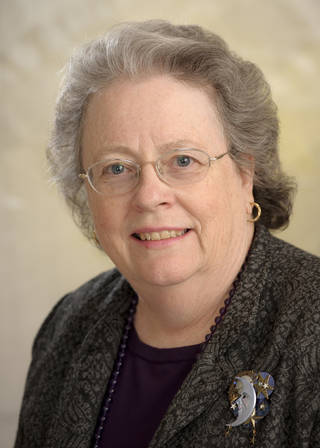Intelligent Design and Evolution at the White House
On August 1, 2005, a group of reporters from Texas met with President Bush in the Roosevelt room for a roundtable interview. The President's remarks suggest that he believes that both intelligent design and evolution should be taught so that "people are exposed to different schools of thought." There have been so many articles since his remarks that it's useful to read the relevant portion of published interview:
Q: I wanted to ask you about the -- what seems to be a growing debate over evolution versus intelligent design. What are your personal views on that, and do you think both should be taught in public schools?
THE PRESIDENT: I think--as I said, harking back to my days as my governor--both you and Herman are doing a fine job of dragging me back to the past. (Laughter.) Then, I said that, first of all, that decision should be made to local school districts, but I felt like both sides ought to be properly taught.
Q: Both sides should be properly taught?
THE PRESIDENT: Yes, people--so people can understand what the debate is about.
Q: So the answer accepts the validity of intelligent design as an alternative to evolution?
THE PRESIDENT: I think that part of education is to expose people to different schools of thought, and I'm not suggesting--you're asking me whether or not people ought to be exposed to different ideas, and the answer is yes."
Breaking space news, the latest updates on rocket launches, skywatching events and more!
(Transcript released by the White House and published on August 2, 2005 at WashingtonPost.com)
The reporter got it right: there is an ongoing debate over intelligent design vs. evolution, at least in the media and in politics. There is not a debate in the greater scientific community about the validity of evolution. Further, the vast majority of scientists do not consider intelligent design as a viable alternative to evolution.
Dr. John Marburger III, Presidential Science Advisor, tried to dispel the impact of the President's comments. On Aug. 2, The New York Times quoted a telephone interview with Marburger in which he said, "evolution is the cornerstone of modern biology" and "intelligent design is not a scientific concept." Certainly, no one doubts where Marburger stands. One might question whether the President takes Marbuger's scientific advice seriously, or is simply more concerned about pleasing a portion of the electorate.
Marburger also spoke with Dr. Marvin Cohen, President of the American Physical Society, and recipient of the National Medal of Science from President Bush in 2002. In an Aug. 4 release, Cohen explains that the APS is "...happy that the President's recent comments on the theory of intelligent design have been clarified. As Presidential Science Advisor John Marburger has explained, President Bush does not regard intelligent design as science. If such things are to be taught in the public schools, they belong in a course on comparative religion, which is a particularly appropriate subject for our children given the present state of the world." It would be better to hear this directly from the President. Likely, the intelligent design advocates will ignore Marburger's explanation. Like the fabled little Dutch boy, Marburger, stuck his finger in the dike in hopes of saving the day.
Unlike the brave boy, Marburger did not prevent the flood of print and electronic coverage that ensued. From August 2 to the present, Google-News tracked more than 1,800 articles, commentaries, and letters to the editor on intelligent design. That's about 120 per day since the President's remarks.
In the days following the interview, major educational and scientific organizations issued statements that criticized the President for considering intelligent design as a viable alternative to evolution, for confusing religion with science, and for advocating that intelligent design be taught in schools.
"President Bush, in advocating that the concept of 'intelligent design' be taught alongside the theory of evolution, puts America's schoolchildren at risk," says Fred Spilhaus, Executive Director of the American Geophysical Union. "Americans will need basic understanding of science in order to participate effectively in the 21st century world. It is essential that students on every level learn what science is and how scientific knowledge progresses." (AGU, Aug. 2, 2005) AGU is a scientific society comprising 43,000 Earth and space scientists.
Likewise, the American Institute of Biological Sciences criticized the President: "Intelligent design is not a scientific theory and must not be taught in science classes," said AIBS president Dr. Marvalee Wake. "If we want our students to be able to compete in the global economy, if we want to attract the next generation into the sciences, we must make sure that we are teaching them science. We simply cannot begin to introduce non-scientific concepts into the science curriculum." (AIBS, Aug. 5, 2005) The American Institute of Biological Sciences was established as a national umbrella organization for the biological sciences in 1947 by 11 scientific societies as part of the National Academy of Sciences. An independent non-profit organization since 1954, it has grown to represent more than 80 professional societies and organizations with a combined membership exceeding 240,000 scientists and educators. (AIBS website)
Science educators are equally dismayed. "The National Science Teachers Association (NSTA), the world's largest organization of science educators, is stunned and disappointed that President Bush is endorsing the teaching of intelligent design - effectively opening the door for nonscientific ideas to be taught in the nation's K-12 science classrooms. We stand with the nation's leading scientific organizations and scientists, including Dr. John Marburger, the president's top science advisor, in stating that intelligent design is not science. Intelligent design has no place in the science classroom, said Gerry Wheeler, NSTA Executive Director." (NSTA, Aug. 3, 2005) NSTA has 55,000 members who teach science in elementary, middle and high schools as well as college and universities.
The American Federation of Teachers, which represents 1.3 million pre-K through 12th grade teachers, was even harsher. "President Bush's misinformed comments on 'intelligent design' signal a huge step backward for science education in the United States. The president's endorsement of such a discredited, nonscientific view is akin to suggesting that students be taught the 'alternative theory' that the earth is flat or that the sun revolves around the earth. Intelligent design does not belong in the science classroom because it is not science." (AFT, Aug. 4, 2005)
There is a problem here. Obviously, scientists and educators understand that intelligent design has no place in the classroom. Intelligent design is, simply, one of several varieties of creationism that offer religious explanations for the origin and current condition of the natural world. As such, it does not merit being taught alongside evolution as a "school of thought." There's significant legal precedent from US Supreme Court that creationism - in any clothing - does not belong in the American classrooms. Teaching creationism is in violation of the separation of church and state, and has been ruled illegal by the US Supreme Court in several cases. It's unfortunate that the President apparently does not understand that science is not equivalent to a belief system but is description of how the natural world works. Creationism, including intelligent design, is a religious point of view, not science.
At a time when industrial, academic, and business leaders are calling for more American students to train in engineering, mathematics, science and technology, we need to teach science in science classrooms. Let's teach the scientific ideas that are supported by overwhelming evidence such as gravitation, relativity, quantum mechanics, and evolution. Creationist ideas/beliefs, such as intelligent design, don't belong in science classrooms. In our haste to leave no child behind, let's not leave science behind either.
Join our Space Forums to keep talking space on the latest missions, night sky and more! And if you have a news tip, correction or comment, let us know at: community@space.com.

Edna DeVore is a science and astronomy educator and the former Director of Education and Public Outreach for the SETI Institute. She earned an undergraduate degree from the University of Pacific followed by a master's degree in instructional technology from San Jose State and a master's in astronomy from the University of Arizona. In 1992, Edna joined the SETI Institute, where she wrote features on space exploration, astrobiology and more, some of which appeared on Space.com. She was among the first principal investigators to propose projects to NASA's Office of Space Science and receive funding for educational programs. Edna went on to work on education and public outreach for NASA's Kepler space telescope and SOFIA flying telescope missions. Edna received numerous awards during her tenure at SETI, including NASA Honor Awards for her work on Kepler and SOFIA, and Aerospace Awareness Award for Women in Aerospace in 2005. Edna retired in 2013.
